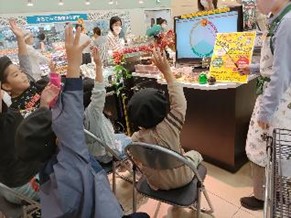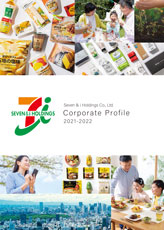- Top
- Sustainability
- Seven & i Holdings Material Issues
- Material Issues 2
- Health and Nutrition
- Sustainability
- Message from the Representative Director & Executive Chair (Kaicho)
- Basic Policies of Sustainability Initiatives
- Sustainability Management
- Stakeholder Engagement
- Business Partners
- Seven & i Holdings Material Issues
- Corporate Governance
- Compliance
- Information Security and Personal Information Protection
- Human Rights Initiatives
- Human Capital Initiatives
- Climate and Nature-related Information Disclosures —Responses to TCFD/TNFD Recommendations
- Social Contribution Activities
- Business Continuity Initiatives
- Overseas Initiatives
- Sustainability Data Book
- External Recognition and Awards
- SASB/GRI Index
- Index for Researchers
- Keyword search
- Editorial Policy
- Social
- Environment
Health and Nutrition
Amid demographic changes, the spread of diverse lifestyles, changes in working styles, and growing focus on health and nutrition, Seven & i Holdings Co., Ltd. and its consolidated subsidiaries (hereinafter referred to as "our Group") are striving to provide nutritionally balanced food products in consideration of customers' further health-consciousness.
In May 2020, in order to create new value for the Group's “Seven Premium” private brand products, the “Seven Premium Connect Declaration” was formulated. It consists of four pillars: eco-friendliness, health-consciousness, high-quality products, and global compatibility. Specific measures included displaying sugar and dietary fiber content on nutrition labels (since September 2019) and developing products with reduced salt and sugar. In development of Seven Premium products, the optimal supplier and Group product development division form a team for the product, and specialists from both sides contribute their information and expertise in a process called “team merchandizing.” The teams include suppliers who have nutrition and health experts or R&D centers of their own.
Example of health food products
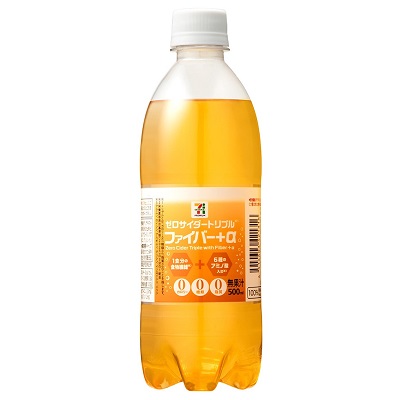
“Seven Premium Zero Cider Triple Fiber +α 500ml”
Zero-calories, zero-sugar, and zero-fat carbonated beverages with dietary fiber
Sales of Healthy Food Products
In light of the need for plant-derived protein, we have a lineup of products that use plant-based food in the Group’s Seven Premium line of private brand products. Ito-Yokado offers boxed lunches with attention given to nutritional balance. We sold approximately 300,000 packages in the fiscal year ended February 28, 2025. By adding dietary fiber, vegetables, and so on, creating colorful boxed lunches, and using fewer additives, we will provide customers with healthier products that meet their specific needs
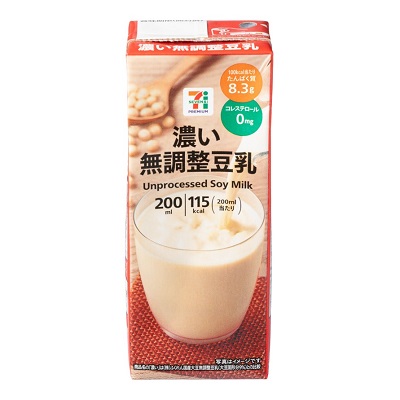
Seven Premium "Unprocessed Soy Milk"

Seven Premium "Tofu Sweets Bar - Gateau Chocolat"
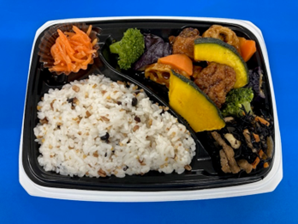
Ito-Yokado’s boxed lunch supervised by dietitians
Labeling of Nutritional Components
In addition to the five components* of energy, protein, fat, carbohydrates, and salt equivalents stipulated by the Food Labeling Law, the Seven & i Group displays two items often requested by customers: sugars (available carbohydrates) and dietary fiber. Sugar and dietary fiber content are displayed on the Group's “Seven Premium” private brand products, fresh foods such as 7-Eleven's boxed lunches, rice balls, sandwiches, delicatessen items, and noodles, and sushi and delicatessen items cooked in Ito-Yokado stores.
In addition, for certain products of “Seven Premium,” we also provide labelling of components subject to voluntary labeling such as saturated fatty acids, trans-fatty acids, and cholesterol. Calorie counts are printed on the front of many products to make it easier for customers to find when selecting a product. Also, icons colored in orange or green are displayed on the front of the packaging so that it is easier to understand the product features. The green icon is used to indicate nutrients like sugar and salt that should not be consumed in excess of what is necessary, while the orange icon indicates nutrients like protein and dietary fiber that should be supplemented.
* Excluding some products with discretionary labeling and small surface area
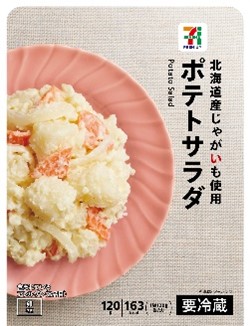
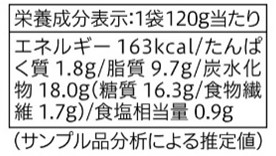
Example of nutritional labeling showing sugars and dietary fiber: Seven Premium "Potato Salad"
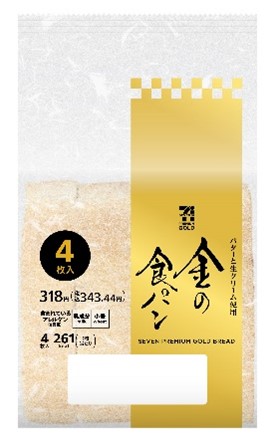
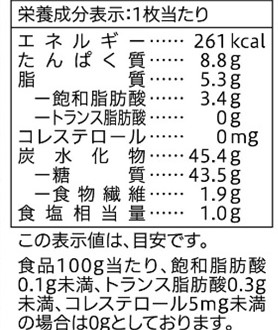
Example of nutritional labeling showing saturated fatty acids, trans fatty acids, and cholesterol:
Seven Premium Gold "Golden Bread"
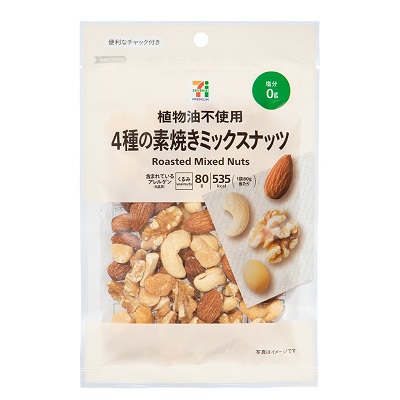
Example of green icon (nutrients that should not be consumed more than necessary) labeling: Seven Premium "Four Types of Unsalted Roasted Mixed Nuts"
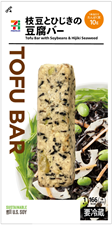
Example of orange icon (nutrients to be supplemented) labeling: Seven Premium Edamame and Hijiki Tofu Bar
Conducting Dietary Education Events for Children
Seven & i Holdings conducts dietary education events* primarily for children of elementary school age or younger as part of its social contribution activities through food. The activities were started in 2022, and by September 2024, a total of six events had been organized with more than 100 customers in total. We are committed to continually enriching the deitary habits of local customers and making them enjoyable through menu suggestions and events.
* Events that aim to help children gain accurate knowledge of food and develop desirable eating habits
